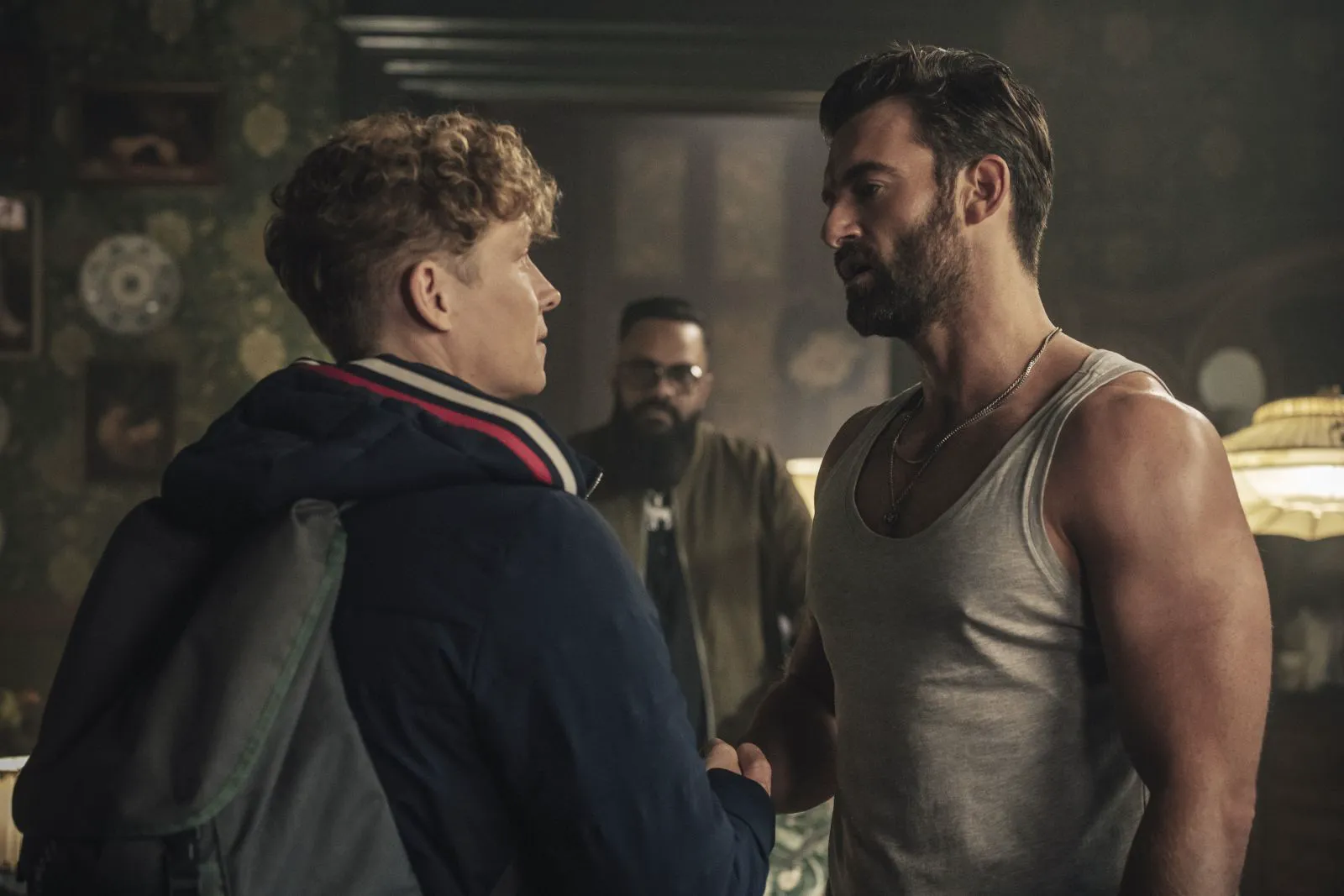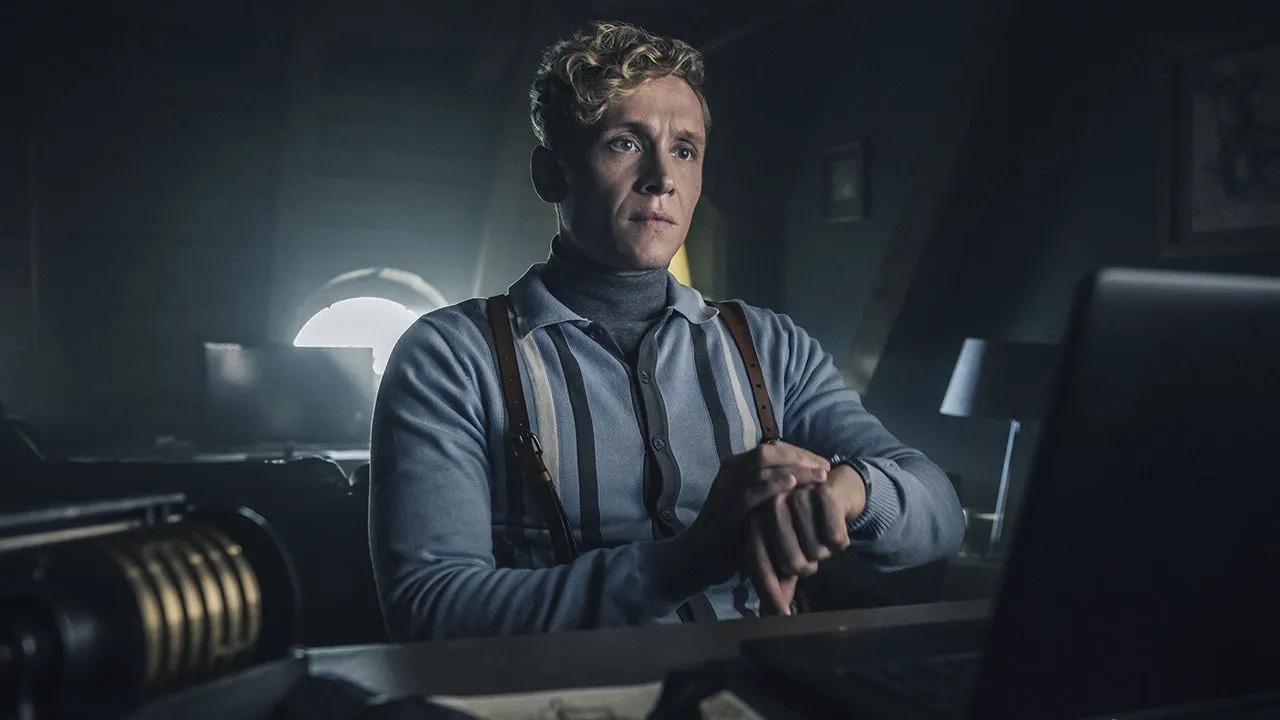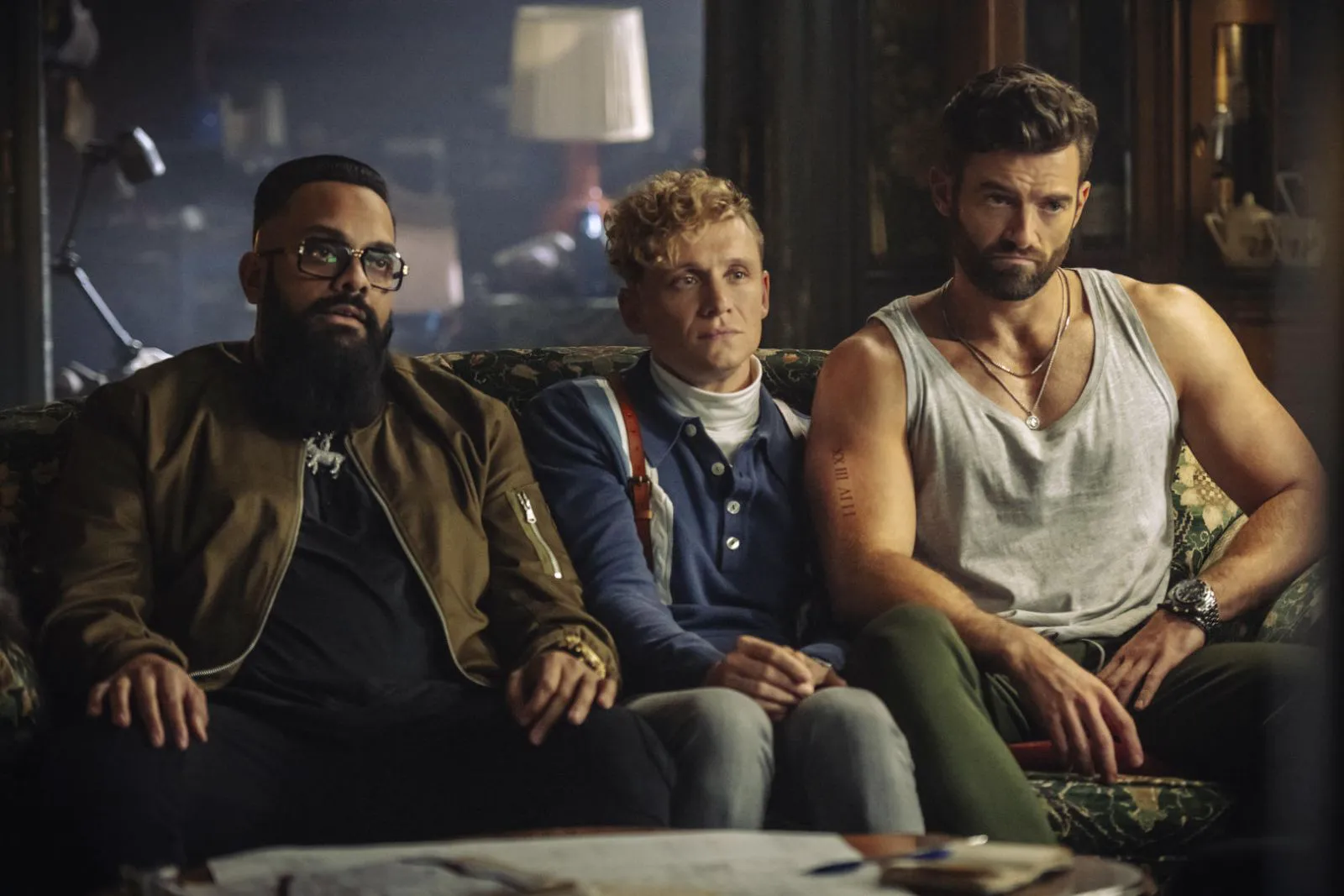Army of Thieves: A Heist Movie with Heart
Sebastian Schlencht-Wöhnert, a man with a rather unpronounceable name (played by Matthias Schweighöfer, whose surname isn’t exactly a walk in the park either), works as a bank clerk. In his spare time, he runs a YouTube channel dedicated to the art of lock-picking. One day, this somewhat hapless blogger catches the eye of a group of professional thieves. They offer him a place on their team to crack a series of legendary safes scattered across Europe. However, for Sebastian, the biggest challenge isn’t just participating in his first heist, but also fitting in with his new colleagues. His partners in crime are a motley crew: Rolf (Guz Khan), the reckless driver; Korina (Ruby O. Fee), the cynical hacker; the charming Gwendoline (Nathalie Emmanuel), with whom Schlencht-Wöhnert falls head over heels; and her intimidating boyfriend, Brad (Stuart Martin).

Matthias Schweighöfer as Sebastian in Army of Thieves
Within the chronology of Netflix’s burgeoning universe (an anime series is even in the works, so this is serious!), “Army of Thieves” precedes the events of Zack Snyder’s “Army of the Dead.” It tells the story of Dieter (here known as Sebastian) before he decided to head to Vegas with Bautista’s crew. Like its predecessor, it’s a heist movie – a thrilling tale of robberies, the intricate tactics of a team of enthusiasts determined to hit the jackpot, and, of course, the dynamics of teamwork. This time, however, there are fewer walking dead. The monsters mostly appear on TV screens and in the protagonist’s restless dreams. The virus is just beginning to spread, and America hasn’t yet grasped the scale of the problem, while our thieves decide to take advantage of the chaos and pull off the heist of a lifetime.

Matthias Schweighöfer as Sebastian in Army of Thieves
What’s Missing from the Snyder Cut?
The question remains: what has the franchise lost since Zack Snyder stepped down as director? On one hand, the insane action, bizarre visual choices, and genuine ruthlessness (his characters died as frequently as teenagers in slasher films). On the other hand, the nauseating handheld camera work, even in simple dialogue scenes, and the pretentiousness. “Army of Thieves,” directed by Matthias Schweighöfer himself (consider this his showcase), is much lighter and more down-to-earth. It’s no longer a blend of zombie horror, heist movie, political satire, and a host of other subgenres, settings, and issues. Instead, it’s a fairly standard heist movie – a slightly self-aware “Ocean’s Eleven.”

Matthias Schweighöfer as Sebastian in Army of Thieves
Sebastian himself occasionally comments on the events in the film. He points out that they have a movie-like team and discuss their heist plan in a brisk, montage sequence – cozy, but frankly pointless, winks to those who might call the film formulaic. And it is. It’s straightforward, simple, not breaking the genre, but hammering away at the safe’s lid where the classic scenarios are hidden. “Army of Thieves” doesn’t care about critics. It doesn’t need justification (though it sometimes seems to try) and certainly not a retelling. It’s an exceptionally unpretentious film that doesn’t need intermediaries. It’s a unique experience of seeing and hearing things you’ve already seen and heard a hundred times – repeat those same things in a review, and the magic disappears.

Matthias Schweighöfer as Sebastian in Army of Thieves
More Than Just a Heist
What’s more interesting in “Army of Thieves” is not the Soderbergh cosplay. Even within the predictable plot, Schweighöfer finds something universally human, endearingly sincere, and far from the genre’s clichés. First and foremost, his film is an ode to neurotic geniuses, eternally self-doubting oddballs who are doomed to awkward attempts to fit in with new people. Sebastian’s hand trembles, he constantly worries about failure, and he can’t quite integrate into the group of old friends. At the bank, right at his workplace, a nasty old woman yells at him. Sebastian glances at the TV and sees the same woman on the screen – only now she’s a zombie. Imposter syndrome is superimposed on the fear of becoming a nobody, an odious commoner with the instincts and desires of a walking dead.
A Protagonist to Root For
The protagonist may seem like a bundle of complexes, but Schweighöfer clearly has the warmest feelings for him. Perhaps because they share similar personalities, or because the director himself plays the role. Or maybe it’s both. The geek, focused on himself and his inner problems (and sometimes on the girl he likes), who is thrilled by the architecture of safes and the music of Wagner, has replaced the self-assured Danny Ocean in expensive glasses. New times, new heroes.